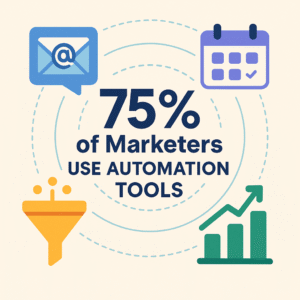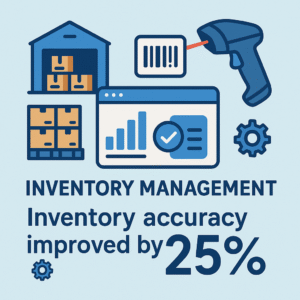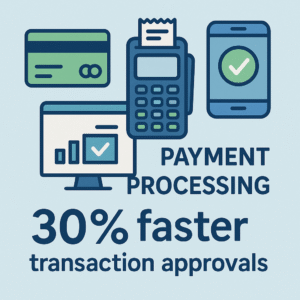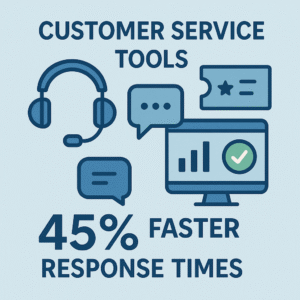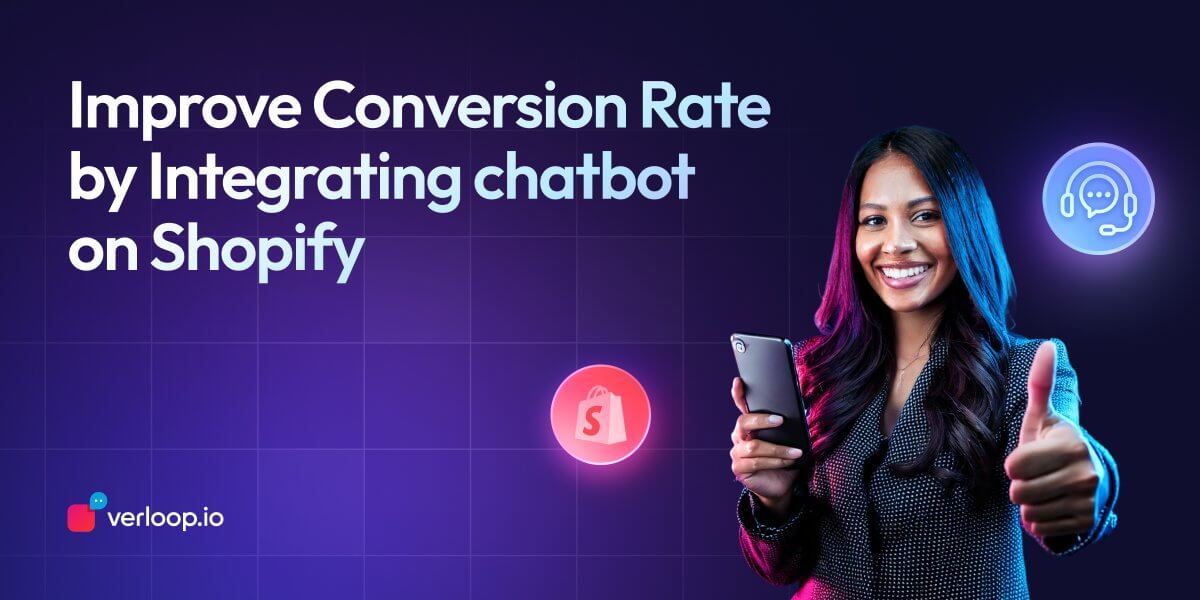
Top 10 E-commerce Automation Tools in 2025
- July 4th, 2025 / 6 Mins read
-
Harshitha Raj
While setting up an online store is relatively easy, running a successful one is challenging. From building your store and sourcing products to marketing, sales, and customer service, there are numerous moving parts to manage. This requires a wide range of skills and often necessitates hiring additional staff. It can be overwhelming.
Thankfully, e-commerce automation tools can help. By streamlining repetitive tasks, these tools free up your time and resources, allowing you to focus on growing your business. Let’s explore how e-commerce automation can simplify your operations and discuss some of the top tools available in 2025.
What is E-commerce Automation?
E-commerce automation is the use of technology to streamline and optimise the operations of an online store. This involves automating tasks such as order processing, customer service interactions, inventory management, and payment processing.
By automating repetitive and time-consuming tasks, businesses can increase efficiency, reduce errors, and free up employees to focus on strategic initiatives. Ultimately, this leads to improved customer satisfaction and business growth.
What are the Different Kinds of Automation Tools?
As an e-commerce store owner, you need multiple tools for writing descriptions of the products, managing SKUs and even automating customer support. Let’s first understand what these tools are:
Marketing Automation Tools
E-commerce marketing automation tools streamline your marketing efforts by automating lead generation, nurturing, and qualification. These tools enhance customer engagement through personalised messaging, track lead progression, and facilitate efficient customer journey management.
Inventory Management Tools
Whether it’s excess inventory or product shortages, maintaining optimal stock levels is crucial for business success. Inventory management tools offer cost-effective solutions by providing features like record alerts, barcode scanning, order processing, sales forecasting, and real-time analytics. Popular platforms such as Zoho, Square, and Linnworks offer these capabilities to streamline inventory control.
Payment Processing Tools
E-commerce payment processing tools are digital pipelines facilitating money transfers between buyers and sellers.
When a customer makes a purchase, the payment information is securely transmitted through a payment gateway to a payment processor.
The processor verifies the payment, authorises the transaction, and transfers the funds from the customer’s bank to the merchant’s account. This process ensures quick and secure transactions. Stripe and PayPal are popular examples of such tools.
Customer Service Tools
Customer service tools are the technological solutions that help resolve and manage customers’ queries and requests.
These tools can vary from simple help desk ticketing systems to complex AI-powered chatbots. Popular ecommerce platforms like Shopify and WooCommerce often integrate with customer service tools like Verloop.io and Zendesk.
They offer features like ticketing systems, automated responses, and customer feedback surveys.
Rule-Based Pricing and Discounts
Prices fluctuate constantly across the entire economic landscape. To effectively adjust price offers, discounts, bundle deals, and wholesale rates, it’s essential to understand different customer segments.
Automation can streamline this process by dynamically adjusting prices based on customer data in real time. By rewarding loyal customers with favourable pricing or tailoring discounts and pricing based on purchase history, you can optimise revenue while enhancing customer satisfaction. Simply configure the automation, and it will handle the rest.
Benefits of eCommerce Automation
There are numerous benefits of deploying e-commerce automation. Let’s discuss some of them:
Fewer Errors
High-volume repetitive tasks can be stressful for humans and often lead to errors. Automation offers a reliable solution by handling these tasks efficiently and accurately.
Unlike humans, automated systems can operate continuously without fatigue, making them less prone to clerical or mathematical mistakes. This ensures that even the most mundane and time-sensitive tasks are completed on time.
Better Customer Experience
In e-commerce, every customer interaction is an opportunity to create a positive impression and foster loyalty. A comprehensive approach is essential, as even a minor negative experience can drive customers away from competitors.
Automating key touchpoints can significantly enhance customer experience by ensuring consistency and efficiency.
Increase Conversion Rates
One of the best benefits that automation offers to your e-commerce business is boosting your conversion rates.
How? Automation can up-sell and cross-sell to customers visiting your online platform.
For instance, if a customer adds a mobile phone to their cart, the automation on your site can suggest a phone cover. This could lead to the customer purchasing it as well.
Efficient Review Management
Review management is crucial for marketing, whether the reviews are positive or negative. Good reviews can influence potential customers to make a purchase, while negative reviews highlight areas for improvement.
Automation can efficiently manage reviews. After purchase, it automatically sends an email requesting feedback, helping you gather positive reviews quickly. It also alerts you to negative reviews, allowing for prompt responses and quick resolutions.
Improved Scalability
As your business grows, so does the order volume. Relying on manpower in this situation becomes time-consuming and costly, making it difficult to stay on track. However, with automation, handling a surge in orders is easy, ensuring high customer satisfaction and operational efficiency.
Suggested Reading: Why Does Your E-commerce Platform Need a Chatbot?
Top 10 Automation Tools for Growth of E-commerce Businesses
Here is the list of the top 10 automation tools that can assist e-commerce businesses upscale without burning holes in your pockets:
Automate Ecommerce Support – Verloop.io
Verloop.io is a leading conversational AI platform for customer support. It helps e-commerce businesses deliver delightful experiences across multiple channels by leveraging advanced NLP and ML to understand and resolve users’ queries.
Features:
- Voice interaction: The voice AI enables users to interact with your brand using voice commands.
- Reporting and analysis: Evaluate the performance and efficiency of your bot.
- Integration: Seamless integration with CRM, payment, marketing, ticketing, ordering systems, and more.
- Customisable templates: Design a knowledge base that reflects your brand.
Benefits:
- Engage every customer with tailored offers and recommendations, enhancing lead generation.
- Trim support costs by automating tasks and reducing expenses with AI-powered intelligent conversations.
- Reach out to customers across various channels in their preferred language, increasing brand influence.
Automate Social Media Management – Buffer
Buffer is a social media management platform that simplifies your online presence. It empowers businesses to plan, create, and schedule content across various social media platforms from a centralised dashboard.
Features:
- Content scheduling: Efficiently plan and publish content across multiple social media platforms.
- Analytics: Gain deep insights into your social media performance, including engagement rates, follower growth, and content reach.
- AI-powered content creation: Leverage AI to generate creative and engaging social media content.
- Seamless integrations: Easily connect with tools like Canva, Google Drive, and Dropbox to streamline media management.
Benefits:
- User-friendly interface: Intuitive design makes Buffer accessible to users of all skill levels.
- Time-saving: Schedule posts in advance and utilise AI-generated content to optimise your time.
- Enhanced collaboration: Facilitate teamwork and maintain brand consistency across your social media channels.
- Wider reach: Buffer’s platform helps you optimise content for different platforms, increasing your chances of reaching a broader audience.
Track E-commerce Store Analytics – Mixpanel
Mixpanel is a robust analytics platform that consolidates data from various business functions into a unified system. This complete view empowers businesses to measure the impact of their product and marketing initiatives effectively.
Features:
- Seamless integration: Easily connect Mixpanel with your existing tools and platforms.
- Real-time user tracking: Gain immediate insights into user interactions.
- User behavior analysis: Measure user retention and engagement to optimise your strategy.
Benefits:
- Informed decision making: By granting direct access to backend data like CRM, marketing, and purchase information, Mixpanel enables teams to make data-driven decisions.
- Real-time insights: The platform offers up-to-the-minute data, allowing businesses to quickly adapt to changing user behaviour.
- Targeted marketing: Mixpanel’s ability to segment users based on behaviour facilitates the creation of personalised marketing campaigns, ultimately driving higher conversion rates.
Automate Sending Email – MailChimp
Mailchimp is a marketing automation platform that empowers businesses of all sizes to expand their audience, nurture customer relationships, and drive sales. Leveraging robust reporting and automation tools, Mailchimp offers a broad solution for marketing success.
Features:
- Create professional-looking email campaigns
- Manage and segment subscriber lists
- Gain valuable insights through detailed analytics
- Automate email workflows based on customer behavior
- Store and analyse customer information
- Integrate with social media platforms
Benefits:
- Wide range of tools to suit diverse marketing needs
- Cost-effective pricing plans
- Seamless integration with numerous applications and platforms
CRM for Ecommerce – Hubspot
HubSpot is again a comprehensive platform offering tools for marketing, sales, and customer service to help businesses attract, engage, delight customers, and ultimately, maximise sales.
Features
Marketing:
- SEO optimization
- Content creation and management
- Email marketing
- Social media management
Sales:
- Contact management
- Deal tracking
- Sales automation
- CRM integration
- Sales email tracking
Customer Service:
- Customer support ticketing
- Live chat
- Knowledge base
- Customer feedback management
Benefits
- Improved customer experience through aligned marketing, sales, and customer service efforts.
- Increased efficiency and productivity with automation.
- Data-driven decision-making enabled by better customer insights.
- Scalability and adaptability to support business growth.
Suggested Reading: The Ultimate Guide to Implementing WhatsApp Chatbots for eCommerce
Campaign Management – CartStack
CartStack is an eCommerce software solution that helps businesses recover lost sales by targeting abandoned carts. It offers multi-channel campaigns and on-site tools to re-engage customers and boost conversions.
Features:
- Email reminders: Send automated emails to nudge customers to complete their purchases.
- Push notifications: Deliver timely reminders directly to customer devices.
- On-site retention tools: Capture emails early, offer incentives to stay, and provide gentle purchase prompts.
- Real-time email capture: Collect customer emails immediately for effective follow-ups.
Benefits:
- Recover lost sales: Effectively target abandoned carts through multiple channels.
- Increase conversions: Enhance the on-site experience with tools like exit intent offers.
- Personalise marketing: Leverage real-time email capture and detailed customer data.
- Easy integration: Seamlessly connect with major eCommerce platforms.
Recharge
Trusted by 20,000 brands, Recharge is an e-commerce automation platform that transforms one-time buyers into loyal subscribers. By automating subscription management, it empowers customers to effortlessly set up recurring orders, manage payment plans, adjust delivery schedules, and modify service levels.
Features
- Send timely email reminders to nudge customers toward completing purchases.
- Deliver targeted push notifications directly to customer devices.
- Boost on-site conversions with tools like early email capture, exit-intent offers, delayed pop-up offers, and conversion nudges.
- Capture potential customer emails in real-time for effective follow-ups.
Benefits
- Recover lost sales by proactively addressing abandoned carts through multiple channels.
- Enhance conversion rates with on-site retention tools and persuasive offers triggered by customer behaviour.
- Utilise real-time email capture and detailed customer insights to personalise marketing campaigns.
- Seamlessly integrate with major e-commerce platforms for efficient setup and management.
Track Customer Data – Klaviyo
Klaviyo is a marketing automation platform designed to help businesses of all sizes enhance their marketing strategies through data-driven insights and automation. By unifying customer data and offering tools for personalised communication across multiple channels, Klaviyo empowers brands to deliver tailored experiences.
Key Features:
- Email marketing: Create dynamic, personalised email campaigns with rich content and product recommendations.
- SMS marketing: Engage high-value customers through targeted text messages.
- Mobile push notifications: Boost customer engagement with timely and relevant alerts.
- Customer data platform (CDP): Collect, organise, and leverage customer data for actionable insights.
- AI-powered content: Generate personalised content suggestions based on customer behaviour.
- Predictive analytics: Forecast customer trends and optimise marketing efforts.
Benefits:
- Personalised marketing: Deliver tailored experiences based on individual customer profiles.
- Data-driven decisions: Make informed choices using comprehensive customer insights.
- Increased engagement: Foster stronger customer relationships through multi-channel communication.
Lead Tracking Tool – Brevo
Brevo is a sales automation software designed for eCommerce businesses. It streamlines various aspects of sales and marketing by automating tasks like lead tracking, communication, and reporting. The platform also incorporates automated marketing features, enabling businesses to create personalised campaigns and gain valuable insights through analytics.
Features:
- Drag-and-drop email editor with customisable templates
- Real-time campaign monitoring for quick adjustments and optimisation
- Automated contact list management for accurate and relevant data
- Multi-channel outreach capabilities
Benefits:
- Automated list management for more targeted campaigns
- GDPR compliance to protect customer data and avoid legal issues
- Personalised campaigns to nurture leads and increase conversion rates
SMS, Email and Push Notification Automation Tool- Omnisend
Omnisend is an ecommerce marketing automation platform that helps businesses streamline their automated marketing activities across email, SMS, and push notifications. It specialises in creating marketing campaigns designed to boost sales, increase customer engagement, and improve customer retention.
Key Features:
- Detailed analytics and reporting dashboard to track campaign performance.
- Customer segmentation is based on purchase behaviour and demographics.
- Live chat and email campaign capabilities.
Benefits:
- Streamlined marketing processes save time and effort.
Automate Your eCommerce Store With Verloop.io
Verloop.io’s advanced conversational AI offers a powerful way to engage customers across multiple channels with personalised, real-time interactions. Its seamless integration with CRM, payment, and marketing systems ensures that every aspect of customer communication is streamlined and efficient.
With features like voice interaction, customizable templates, and dashboard reporting, Verloop.io not only enhances customer experiences but also significantly reduces support costs. For e-commerce businesses looking to elevate their customer service while maintaining operational efficiency, Verloop.io is an excellent choice.
Book a demo to experience its capabilities firsthand and see how it can transform your customer support operations.
FAQs
1. What is an e-commerce automation tool?
An e-commerce automation tool is software that automates repetitive online retail tasks—like order processing, inventory updates, email marketing, and customer segmentation—to save you time and reduce human error.
2. Which business functions can I automate?
You can automate a wide range of processes, including:
Order fulfilment and shipping notifications
Inventory tracking and stock-level alerts
Pricing updates and dynamic promotions
Abandoned-cart recovery emails
Customer support workflows (chatbots, ticket routing)
Post-purchase feedback and reviews requests
3. How do I choose the right automation tool for my store?
Focus on:
Integrations: Does it connect seamlessly with your platform (Shopify, Magento, WooCommerce)?
Scalability: Can it handle your peak-season order volumes?
Ease of use: How steep is the learning curve for your team?
Customisation: Can you tailor workflows to your unique business rules?
Pricing structure: Does the cost align with your current sales volume and growth plans?
4. Will automation tools really improve my ROI?
Yes—by reducing manual effort, improving order accuracy, and boosting customer retention through personalised marketing, many merchants see payback within months. Look for case studies or transparent metrics (e.g., “25 % reduction in cart abandonment” or “30 % faster shipping”) when evaluating vendors.
5. Are there any risks to automating too much?
Over-automation can lead to:
Brand-inhospitable messaging if you over-personalise without segmenting properly
Inventory mishaps if thresholds aren’t configured correctly
Customer frustration if bots don’t escalate complex queries
To avoid this, monitor key metrics closely and always include human-handover options.
6. Can small businesses benefit from e-commerce automation?
Absolutely. Even modest stores can automate email campaigns, social-media posting, and stock alerts to free up time for high-value tasks like product development and customer outreach. Many providers offer tiered pricing for smaller volumes.
7. How difficult is it to integrate these tools?
Most leading automation platforms offer one-click or pre-built connectors for popular e-commerce systems. You’ll typically spend a few hours on setup and testing, rather than days of custom coding.
8. What should I measure to track automation success?
Key performance indicators (KPIs) include:
Order-processing time
Cart-abandonment rate
Email-campaign open and click-through rates
Customer-support response times
Inventory-accuracy percentage
Repeat-purchase rate
9. Do automation tools support omnichannel selling?
Yes—many tools now synchronise data across marketplaces (Amazon, eBay), social-commerce channels (Instagram Shops), and your own website, so you maintain consistent inventory, pricing, and customer records everywhere.
10. How do I stay current with new automation capabilities?
Keep an eye on vendor roadmaps, subscribe to industry newsletters, and attend webinars or conferences. As AI evolves, expect more predictive-analytics features (e.g., demand forecasting, dynamic product recommendations) to become standard in 2025.




